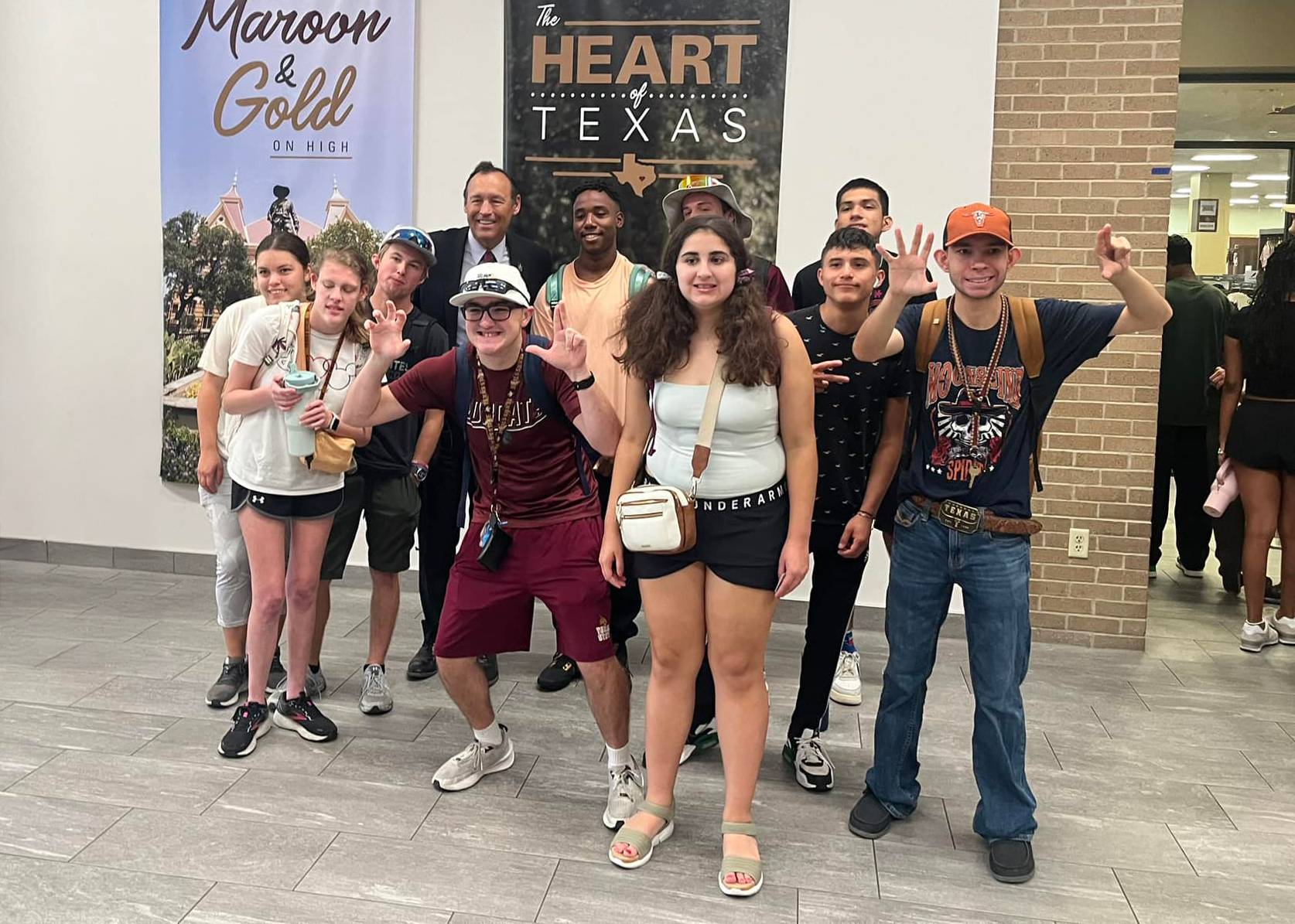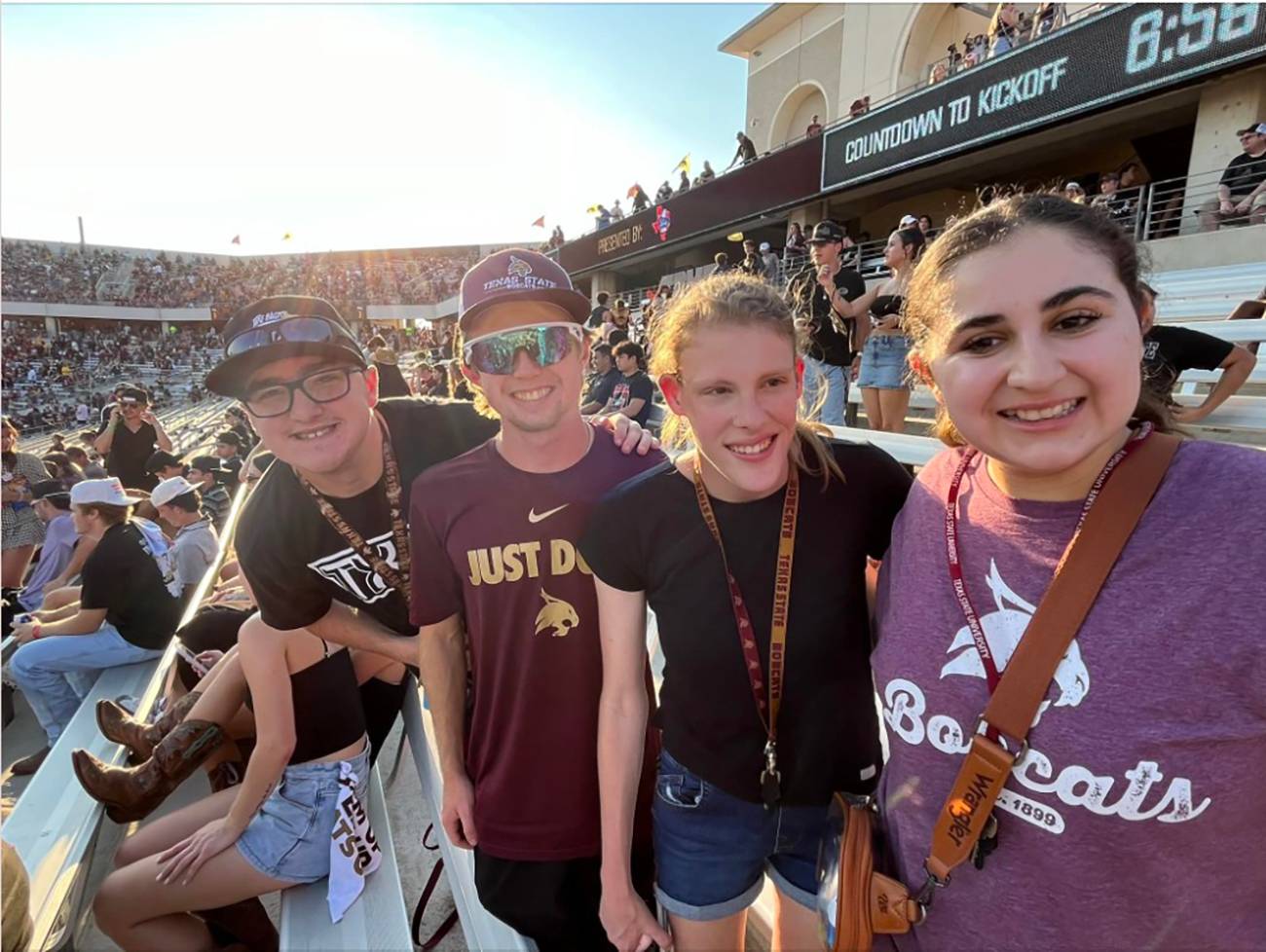TXST launched Bobcat RISE (Resilience, Independence, Self-determination and Empowerment) in Fall 2023 to offer students with intellectual and developmental disabilities (IDD) the opportunity to take tailored college courses and learn new skills to live independently and enter the workforce. Housed in the College of Education, the program enrolled five students for the first cohort and has since grown to enroll 10 students per year.
Bobcat RISE is only the third four-year residential program in the state. The curriculum is split between 40% traditional academic classes, 40% job shadowing and internships, and 20% independent living skills. While participants don’t earn a degree, they are invited to walk during commencement and receive a certificate of completion.
TXST administrators started pursuing a program for students with intellectual and developmental disabilities in 2021. During their research, they found Tamara Shetron, a Bobcat alum who had studied relevant programs while she was a doctoral student. Shetron received her Ph.D. in developmental education in 2020.
Shetron was invited to join a 17-person think tank to develop the program at TXST while she was working at Austin Community College, where her job involved aligning two-year and four-year degrees. Together, the group started the conversation of what an inclusive postsecondary education program would look like at TXST for students with IDD.
Once the plans were solidified and funding for the program was secured, TXST posted the job for a program director. Shetron applied, landed the role, and headed back down to San Marcos in 2022.
“I gained a lot of program mapping and requirement designing experience at ACC,” Shetron said. “But before that, I was a musician and a spiritual instructor at a residential center for adults with IDD. The residents’ parents would tell me how much it hurt their heart that they would probably pass away before their loved one who had trouble taking care of themselves. What’s the best way to fix that? Education. I decided I wanted to tackle that issue.”
Christian, a 25-year-old from Fredericksburg, is in the first cohort of Bobcat RISE. He said he applied because of his love of history and goal of landing a job in that field after college.
“I want to work in a museum as a tour guide or as a history specialist to help staff and visitors,” Christian said. “I’ve been into all types of history since I was little.”




